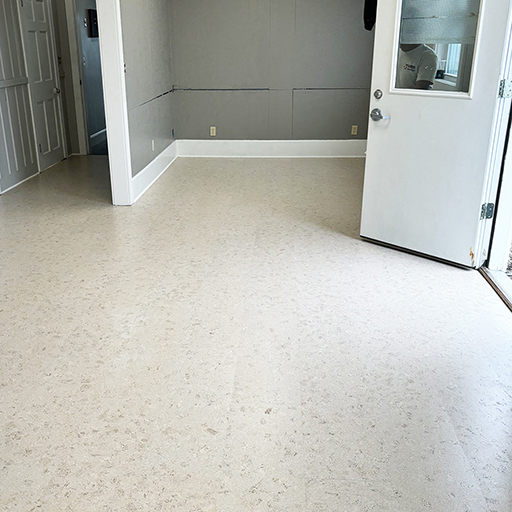Humidity has minimal impact on cork flooring, provided that some basic principles are understood and accounted for. This article explains the nature of cork, and offers important installation guidelines to prevent issues related to humidity.
Cork Handles Humidity Better than Hardwood
All organic materials expand and contract when humidity changes. Non-organic materials like ceramic tiles do not. Cork does quite well with humidity, and is generally more stable by nature than hardwoods. This is because cork expands and contracts in all directions, whereas wood moves only across the grain.
Best Type of Cork Floor for Humidity?
Although glue-down and floating cork floors can both be installed in environments where humidity is a concern, we recommend using floating floors. The main reason is this: In floating floors, the entire floor expands and contracts together, but with glue-down floors, individual tiles do so independently. This independent movement increases the possibility of buckling or gaps, as tiles move towards or away from each other. In contrast, floating floors minimize any such potential issues.
Accounting for Floor Expansion
Typically floating floor installations require leaving ⅜” space for expansion around the perimeter (glue-down floors require slightly less). Leaving space at doorways is also key, and sometimes goes overlooked. For locations with higher humidity, this should be increased to ½”. Likewise, the necessity of including expansion joints every 30 ft for larger floating floor installations cannot be understated here.
Acclimating Cork Flooring Before Installation
Glue-down flooring should always be acclimated to the average humidity of the location prior to installing. Otherwise, tiles will contract as air dries out, and seams will occur. The National Wood Flooring Association (NWFA) states that for wood this is generally between 30-50% relative humidity. Acclimating is not typically required for floating floors. However, for very dry climates, we do recommend it to be on the safe side.

Newly installed yoga studio - Eco-Nomical Ivory, floating floor
Success with Cork Flooring in Humidity
As outlined above, humidity does not have to be an issue. In fact, cork flooring can be installed in intense humidity environments such as:
- Hot yoga studios
- Wood cabins
- Beach houses
- Three season rooms (without climate control)
By following the guidelines covered in this article, you can look forward to success with your cork floor.
More Cork Flooring Questions?
If you still have lingering questions, feel free to contact WECORK. We also invite you to subscribe for blog notifications, as we continue to add new topics regularly.






